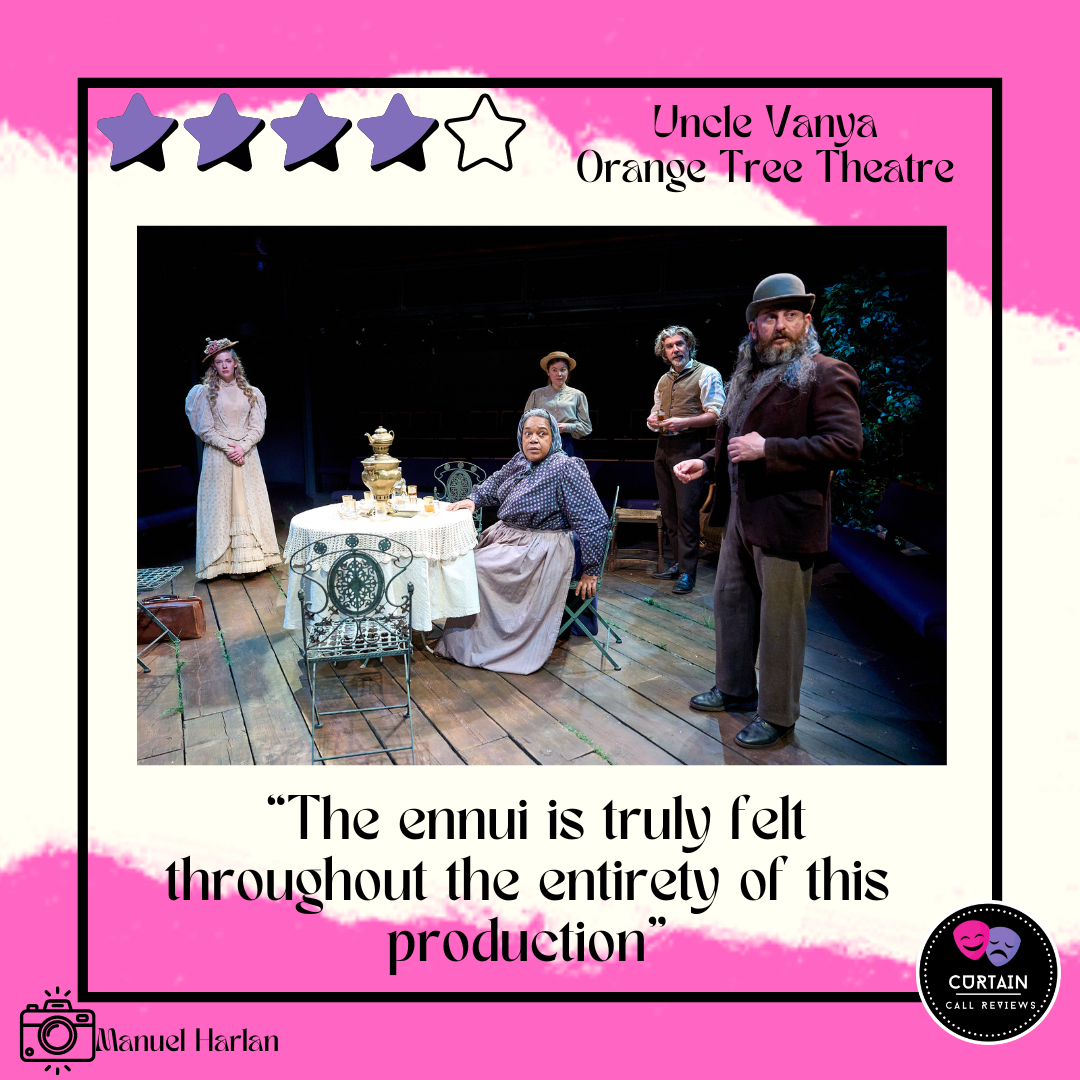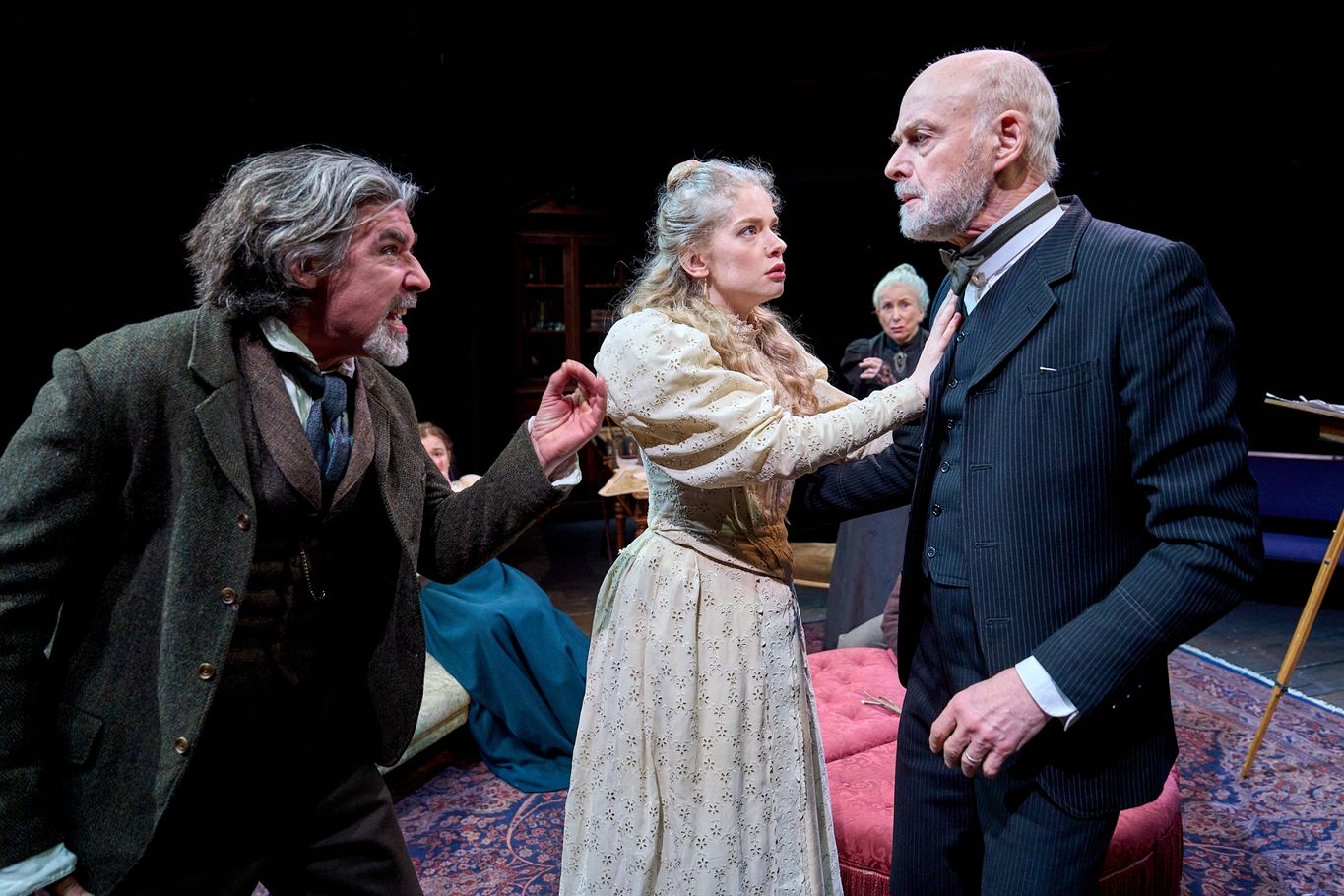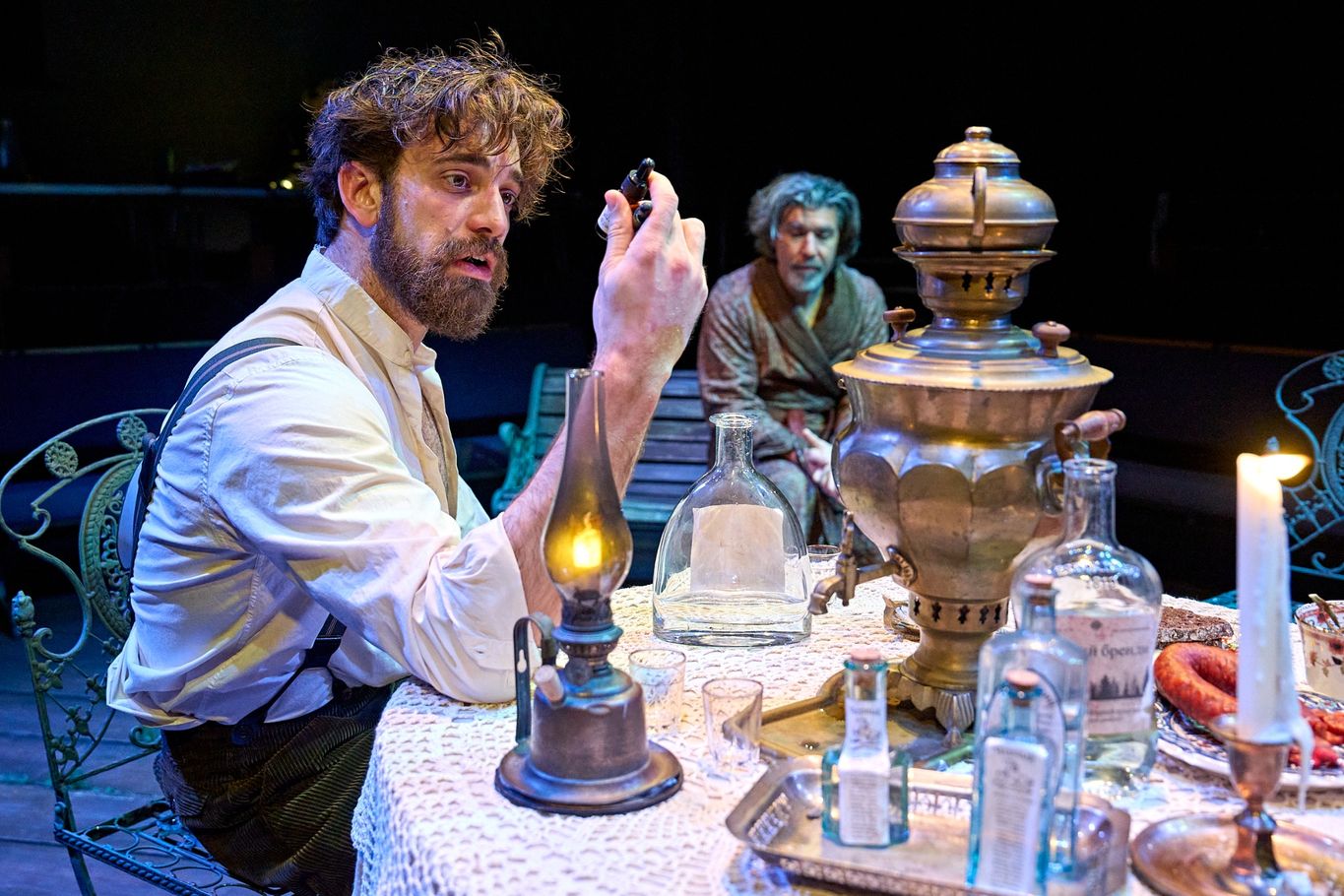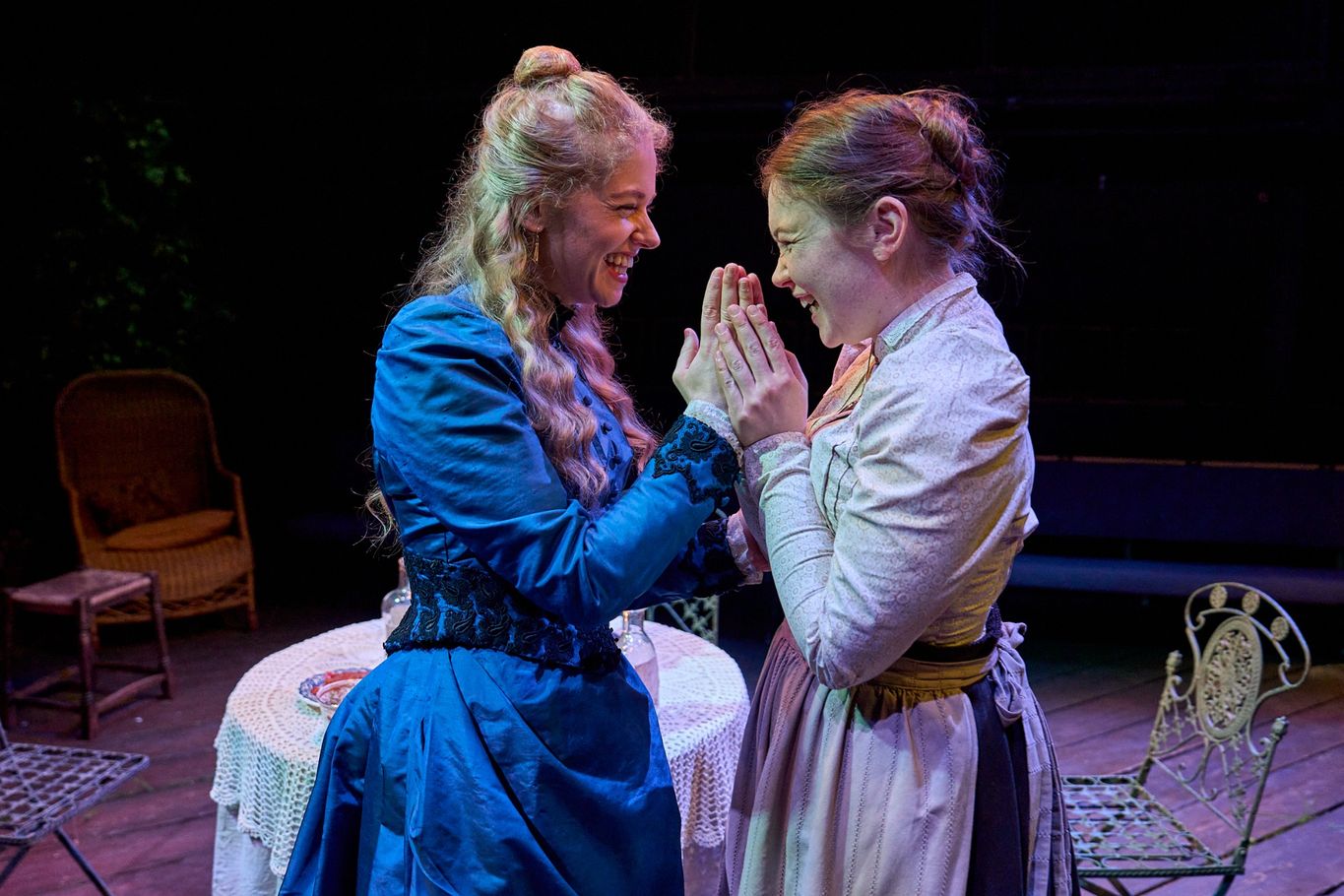
Uncle Vanya
Uncle Vanya comprises of waiting, yearning, feeling as if one’s life is withering away… simply by witnessing the action (or rather, the absence of it) unfold on stage.
As time passes, there is a perpetual sense of lack; something is missing. The characters fill that void by knitting, drinking themselves into silly stupors, or fussing over whether the tea is hot enough.
For the audience, this sense of lack is possibly the desire to be entertained or impressed, to escape from the banality of life, and yet having to reckon with the piercing accuracy of it all in Uncle Vanya, even with the production design being so distinctly from another era.

Looking around designer Simon Daw’s set, the garden terrace may not be fully naturalistic, but surely possesses exquisite detail. Lily Sacofsky, who plays the young second wife Elena, has her hair worn in luxuriously intricate braids and curls that no one living with modern-day distraction will ever have the time to pull off. (Honestly, how does hair and wigs supervisor Chris Smyth pull it off?)
The intricacy in Elena’s hairstyling goes beyond portraying her as a beautiful woman. It is another hint at the bourgeoisie’s idleness, their lack of purpose and work providing them with so much time to dabble in the trivialities of activities such as preening. This is a marked contrast to the doctor Astrov (Andrew Richardson), a member of the working class who spends his free time focusing on ecological preservation, arguably a more worthwhile and noble pastime.

Truly, ennui is universal, timeless and deeply felt throughout the entirety of this production. Uncle Vanya reinforces playwright Anton Chekhov’s reputation as a brilliant dramatist whose work sits within the duality of realism and absurdism.
During the climactic scene in which Uncle Vanya (James Lance) chases Professor Serebryakov (William Chubb) with a pistol, gunshots fired to the horror of their family members, the audience cannot help but laugh at the futility of it all. Amidst devastated cries and guttural moans of a life wasted, the family decides in the end to pretend carry on as if none of it ever happened.
The standout actor of the evening is Madeleine Gray, who portrays Sonya, a young lady of marrying age. Despite being described as plain by other characters (clearly a focus on her outer appearance), Gray’s Sonya possesses the richest inner life out of everyone within the play. Beyond youthful idealism, Gray brings to the role an unrelenting desperation to be loved, married superbly with poise.

It would be interesting to see the production lean even more into the theatre’s in-the-round layout, given the multiple occasions in which audience members are obstructed by another actor in the scene. It is a tricky balance, seeing as idleness and stillness often go hand in hand.
Nonetheless, director Sir Trevor Nunn makes such staging choices completely intentional. This growing frustration of being obscured from the action effectively feeds back into the mounting restlessness the audience senses in these characters.
Overall, Uncle Vanya captures the banality of life with such perceptiveness, that anyone who is unable to grab a ticket simply needs to observe their neighbour’s homes for 2 hours and 40 minutes.
This show was reviewed on the 7th March 2024 at the Orange Tree Theatre, London where it runs until the 13th April 2024. Tickets available here: Uncle Vanya - Orange Tree Theatre
Review written by Vic Chen
AD/Gifted
Photo credit: Manuel Harlan
Check out other reviews from Curtain Call Reviews and get in touch to have our reviewers head to your show.